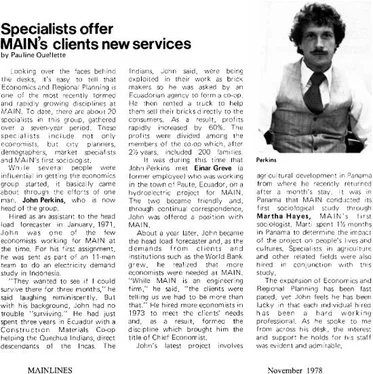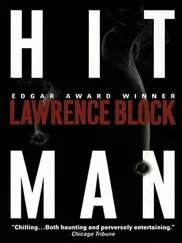John Perkins - Confessions of an Economic Hit Man
Здесь есть возможность читать онлайн «John Perkins - Confessions of an Economic Hit Man» весь текст электронной книги совершенно бесплатно (целиком полную версию без сокращений). В некоторых случаях можно слушать аудио, скачать через торрент в формате fb2 и присутствует краткое содержание. Жанр: economics, на английском языке. Описание произведения, (предисловие) а так же отзывы посетителей доступны на портале библиотеки ЛибКат.
- Название:Confessions of an Economic Hit Man
- Автор:
- Жанр:
- Год:неизвестен
- ISBN:нет данных
- Рейтинг книги:4 / 5. Голосов: 1
-
Избранное:Добавить в избранное
- Отзывы:
-
Ваша оценка:
- 80
- 1
- 2
- 3
- 4
- 5
Confessions of an Economic Hit Man: краткое содержание, описание и аннотация
Предлагаем к чтению аннотацию, описание, краткое содержание или предисловие (зависит от того, что написал сам автор книги «Confessions of an Economic Hit Man»). Если вы не нашли необходимую информацию о книге — напишите в комментариях, мы постараемся отыскать её.
Confessions of an Economic Hit Man — читать онлайн бесплатно полную книгу (весь текст) целиком
Ниже представлен текст книги, разбитый по страницам. Система сохранения места последней прочитанной страницы, позволяет с удобством читать онлайн бесплатно книгу «Confessions of an Economic Hit Man», без необходимости каждый раз заново искать на чём Вы остановились. Поставьте закладку, и сможете в любой момент перейти на страницу, на которой закончили чтение.
Интервал:
Закладка:
These newspapers were read to men and women who had never attended school. Everyone seemed to take an interest in this issue. Here I was, in the Amazon rain forest, among illiterate people many in North America consider “backward,” even “savages,” and yet probing questions were being asked that struck at the heart of the global empire.
Driving out of Shell, back past the hydroelectric dam and high into the Andes, I kept thinking about the difference between what I had seen and heard during this visit to Ecuador and what I had become accustomed to in the United States. It seemed that Amazonian tribes had a great deal to teach us, that despite all our schooling and our many hours reading magazines and watching television news, we lacked an awareness they had somehow found. This line of thinking made me think of “The Prophecy of the Condor and Eagle,” which I have heard many times throughout Latin America, and of similar prophecies I have encountered around the world.
Nearly every culture I know prophesies that in the late 1990s we entered a period of remarkable transition. At monasteries in the Himalayas, ceremonial sites in Indonesia, and indigenous reservations in North America, from the depths of the Amazon to the peaks of the Andes and into the ancient Mayan cities of Central America, I have heard that ours is a special moment in human history, and that each of us was born at this time because we have a mission to accomplish.
The titles and words of the prophecies differ slightly. They tell variously of a New Age, the Third Millennium, the Age of Aquarius, the Beginning of the Fifth Sun, or the end of old calendars and the commencement of new ones. Despite the varying terminologies, however, they have a great deal in common, and “The Prophecy of the Condor and Eagle” is typical. It states that back in the mists of history, human societies divided and took two different paths: that of the condor (representing the heart, intuitive and mystical) and that of the eagle (representing the brain, rational and material). In the 1490s, the prophecy said, the two paths would converge and the eagle would drive the condor to the verge of extinction. Then, five hundred years later, in the 1990s, a new epoch would begin, one in which the condor and eagle will have the opportunity to reunite and fly together in the same sky, along the same path. If the condor and eagle accept this opportunity, they will create a most remarkable off-spring, unlike any ever seen before.
“The Prophecy of the Condor and Eagle” can be taken at many levels — the standard interpretation is that it foretells the sharing of indigenous knowledge with the technologies of science, the balancing of yin and yang, and the bridging of northern and southern cultures. However, most powerful is the message it offers about consciousness; it says that we have entered a time when we can benefit from the many diverse ways of seeing ourselves and the world, and that we can use these as a springboard to higher levels of awareness. As human beings, we can truly wake up and evolve into a more conscious species.
The condor people of the Amazon make it seem so obvious that if we are to address questions about the nature of what it is to be human in this new millennium, and about our commitment to evaluating our intentions for the next several decades, then we need to open our eyes and see the consequences of our actions — the actions of the eagle — in places like Iraq and Ecuador. We must shake ourselves awake. We who live in the most powerful nation history has ever known must stop worrying so much about the outcome of soap operas, football games, quarterly balance sheets, and the daily Dow Jones averages, and must instead reevaluate who we are and where we want our children to end up. The alternative to stopping to ask ourselves the important questions is simply too dangerous.
CHAPTER 35. Piercing the Veneer
Shortly after I returned home from Ecuador in 2003, the United States invaded Iraq for the second time in a little over a decade. The EHMs had failed. The jackals had failed. So young men and women were sent to kill and die among the desert sands. One important question the invasion raised, but one that I figured few Americans would be in a position to consider, was what this would mean for the royal House of Saud. If the United States took over Iraq, which according to many estimates has more oil than Saudi Arabia, there would seem to be little need to continue honoring the pact we struck with the Saudi royal family in the 1970s, the deal that originated with the Saudi Arabian Money-laundering Affair.
The end of Saddam, like the end of Noriega in Panama, would change the formula. In the case of Panama, once we had reinstated our puppets, we controlled the Canal, regardless of the terms of the treaty Torrijos and Carter had negotiated. Once we controlled Iraq, then, could we break OPEC? Would the Saudi royal family become irrelevant in the arena of global oil politics? A few pundits were already questioning why Bush attacked Iraq rather than funneling all of our resources into pursuing al-Qaeda in Afghanistan. Could it be that from the point of view of this administration — this oil family — establishing oil supplies, as well as a justification for construction contracts, was more important than fighting terrorists?
There also was another possible outcome, however; OPEC might attempt to reassert itself. If the United States took control of Iraq, the other petroleum-rich countries might have little to lose by raising oil prices and/or reducing supplies. This possibility tied in with another scenario, one with implications that would likely occur to few people outside the world of higher international finance, yet which could tip the scales of the geopolitical balance and ultimately bring down the system the corporatocracy had worked so hard to construct. It could, in fact, turn out to be the single factor that would cause history’s first truly global empire to self-destruct.
In the final analysis, the global empire depends to a large extent on the fact that the dollar acts as the standard world currency, and that the United States Mint has the right to print those dollars. Thus, we make loans to countries like Ecuador with the full knowledge that they will never repay them; in fact, we do not want them to honor their debts, since the nonpayment is what gives us our leverage, our pound of flesh. Under normal conditions, we would run the risk of eventually decimating our own funds; after all, no creditor can afford too many defaulted loans. However, ours are not normal circumstances. The United States prints currency that is not backed by gold. Indeed, it is not backed by anything other than a general worldwide confidence in our economy and our ability to marshal the forces and resources of the empire we have created to support us.
The ability to print currency gives us immense power. It means, among other things, that we can continue to make loans that will never be repaid — and that we ourselves can accumulate huge debts. By the beginning of 2003, the United States’ national debt exceeded a staggering $6 trillion and was projected to reach $7 trillion before the end of the year — roughly $24,000 for each U.S. citizen. Much of this debt is owed to Asian countries, particularly to Japan and China, who purchase U.S. Treasury securities (essentially, IOUs) with funds accumulated through sales of consumer goods — including electronics, computers, automobiles, appliances, and clothing goods — to the United States and the worldwide market. 1
As long as the world accepts the dollar as its standard currency, this excessive debt does not pose a serious obstacle to the corporatocracy. However, if another currency should come along to replace the dollar, and if some of the United States’ creditors (Japan or China, for example) should decide to call in their debts, the situation would change drastically. The United States would suddenly find itself in a most precarious situation.
Читать дальшеИнтервал:
Закладка:
Похожие книги на «Confessions of an Economic Hit Man»
Представляем Вашему вниманию похожие книги на «Confessions of an Economic Hit Man» списком для выбора. Мы отобрали схожую по названию и смыслу литературу в надежде предоставить читателям больше вариантов отыскать новые, интересные, ещё непрочитанные произведения.
Обсуждение, отзывы о книге «Confessions of an Economic Hit Man» и просто собственные мнения читателей. Оставьте ваши комментарии, напишите, что Вы думаете о произведении, его смысле или главных героях. Укажите что конкретно понравилось, а что нет, и почему Вы так считаете.












